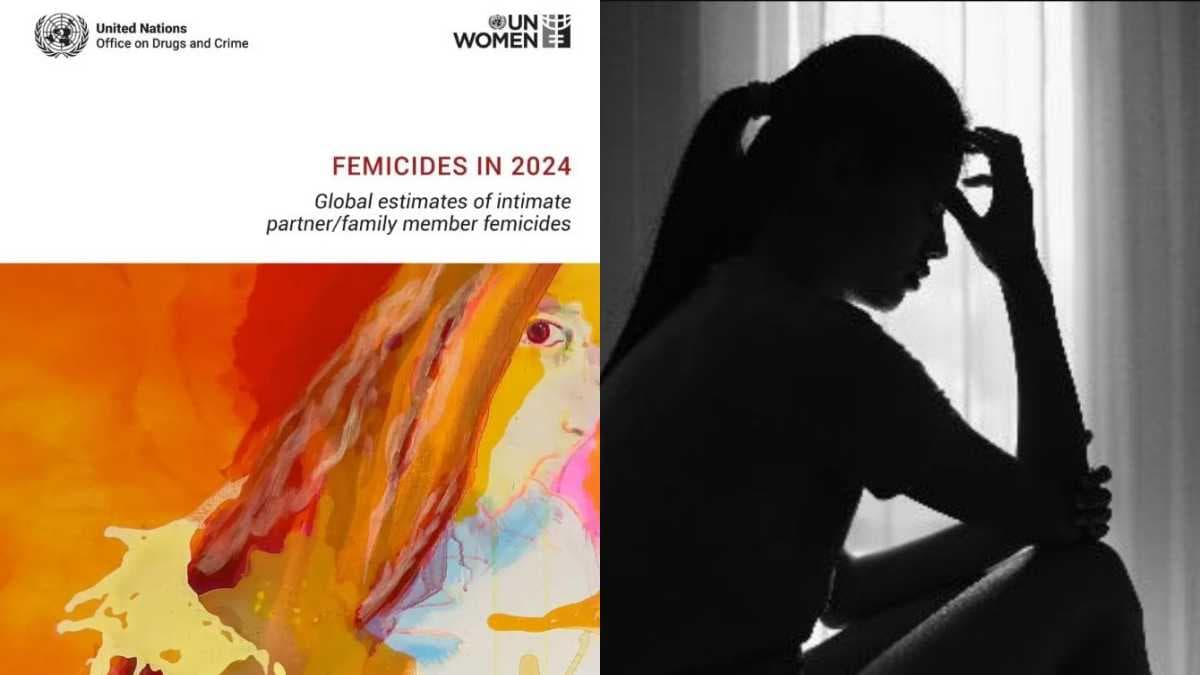UN report: One woman killed every 10 minutes in 2024 by a partner or family member worldwide
UN agencies report that almost 50,000 women and girls were killed by partners or relatives in 2024, with Asia accounting for at least 17,400 cases. Despite a slight decrease from previous estimates, experts say the change reflects data gaps rather than real progress.

- Nearly 50,000 women and girls worldwide were killed in 2024 by intimate partners or family members, according to UN agencies.
- Asia recorded at least 17,400 such killings, with experts warning that gaps in data obscure the true scale of femicide.
- UN bodies call for stronger prevention, improved data systems, and coordinated justice responses to combat gender-related killings.
UNITED NATIONS: Every 10 minutes in 2024, a woman somewhere in the world was killed by someone close to her, according to a report released on 25 November by the United Nations Office on Drugs and Crime and UN Women.
The report estimates that nearly 50,000 women and girls were killed by intimate partners or family members during the year.
According to the United Nations, these deaths represent about 60 per cent of all female homicide victims.
For comparison, the report noted that only 11 per cent of men killed globally were murdered by someone close to them. This disparity highlights the gendered nature of domestic and family violence.
The report cautioned that the global figure, slightly lower than that of 2023, does not signify genuine improvement. According to UN agencies, the variation is largely due to differences in national data availability.
The study emphasised that femicide continues to claim tens of thousands of lives each year.
It added that the home “continues to be the most dangerous place for women and girls in terms of the risk of homicide”.
Regional patterns show that Africa recorded the largest number of femicides again in 2024, with around 22,000 cases. According to the report, no region was free from gender-related killings.
In Asia, new findings released in Bangkok on 25 November indicate that at least 17,400 women and girls were killed by intimate partners or family members in 2024.
UN Women and UNODC warned that the slight decline from 2023 is not meaningful and likely reflects ongoing gaps in national reporting systems.
Christine Arab, Regional Director of UN Women Asia and the Pacific, said that ending femicide requires confronting gender inequalities and harmful social norms. She added that accountability and survivor-centred approaches remain essential.
Delphine Schantz, UNODC Regional Representative for Southeast Asia and the Pacific, said the annual figures remain “alarming”. She stressed the need to build justice systems that both protect and empower women and girls.
According to the report, technological developments have increased the complexity of violence through forms such as doxxing, non-consensual image sharing, and deepfake videos.
Ms Sarah Hendricks, Director of UN Women’s Policy Division, stated that laws must recognise how violence manifests both online and offline. She added that perpetrators must be held accountable before abuse escalates to lethal levels.
Across the Asia-Pacific region, several countries are working to close data gaps by strengthening national systems. Mongolia and Fiji have applied the Statistical Framework for Measuring the Gender-related Killing of Women and Girls developed by UNODC and UN Women.
At the Global Meeting on Measuring Femicide held in Vienna in July 2025, governments discussed progress and challenges in applying the statistical framework. The Republic of Korea presented findings from its feasibility study, examining how the methodology could be adapted to national conditions.
Mongolia and Fiji have completed pilot studies under the framework.
According to the report, their experiences demonstrated improvements in identifying gender-related motives and enhancing disaggregated data.
Participants in the Vienna meeting reported common challenges, including the need for harmonised definitions and multisectoral coordination. Several countries expressed interest in joining future phases of the initiative.
This year’s Global Femicide Report underlined that preventing gender-related killings requires strong data, targeted policies, and long-term investment.
According to UN agencies, progress in Asia and the Pacific shows what is possible when institutions coordinate, evidence is strengthened, and survivors’ experiences guide national strategies.








0 Comments